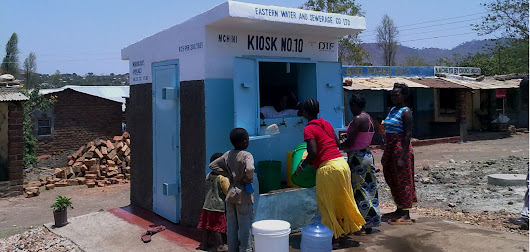Solutions and Opportunities II

Hi, this is an extension of the previous post where I'll just be talking about one solution that may be better in addressing the safety concerns that women have. A more Gender-appropriate solution? Pee-Poo Pee-Poo is a single-use, self-sanitising, biodegradable toilet that builds on the idea of flying toilets and attempts to create a market for these technologically advanced flying toilets in hopes to also reduce the impact that faeces has on the environment. The bags are coated with urea which deactivates any pathogen (bacteria, viruses and parasites) in a month. Once the bag has been used, it can be buried in the ground where, after weeks, the bag should degrade, leaving rich fertiliser. This also helps with problems of waste collection. In many cases, informal settlements are often ignored when it comes to provision of safe water or the collection of waste. Pee-poo being biodegradable and lined with urea eliminates the reliance on inadequate service provision...




